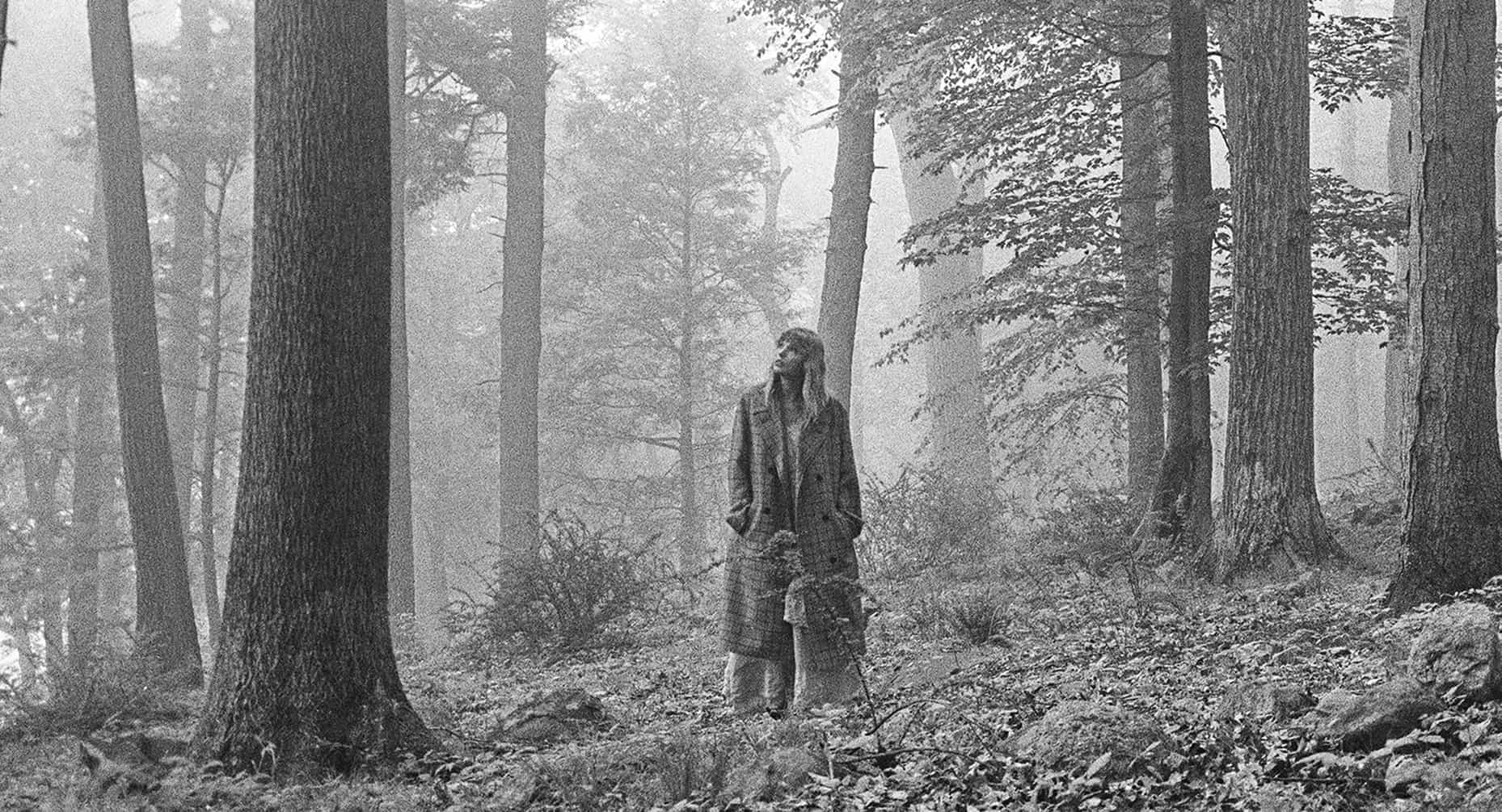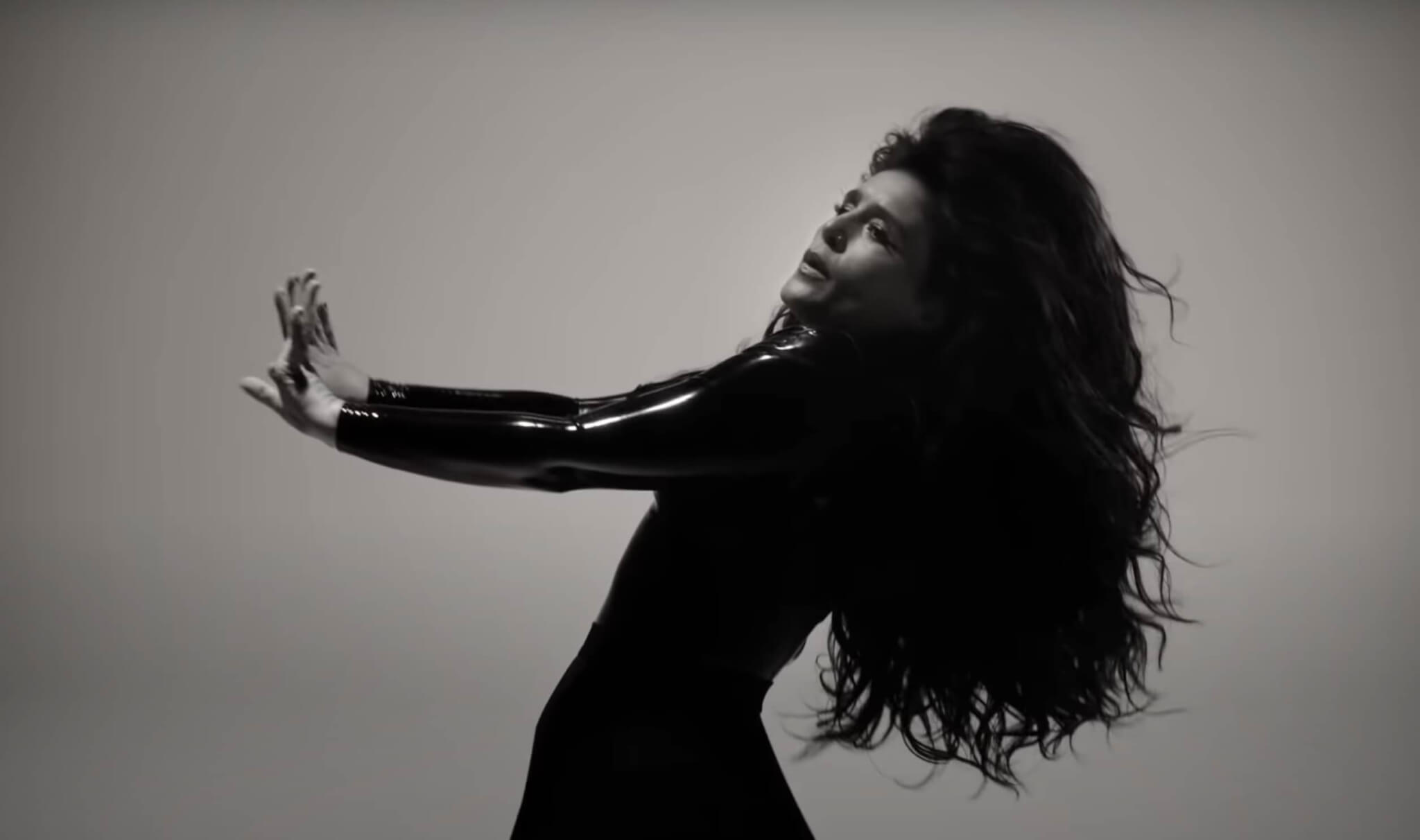“So much for summer love and saying ‘us,’ ’cause you weren’t mine to lose…“
Out of nowhere (well, The Woods), Taylor Swift emerged on Thursday (July 23) to announce the release of her eighth studio album later that night – without any fanfare, just Folklore.
Unlike the Max Martin and Shellback mega-pop production of 1989 and trap and EDM-infused reputation, Taylor’s eighth studio effort tackles musical territory far less Top 40 radio-friendly than any album she’s done in years – or ever, really.
Folklore feels remarkably adult – her most grown effort, for sure – especially compared to the music she was promoting one year prior (I mean…“Me!”), presented without relying on a scavenger hunt campaign full of hints for frenzied Swifties, nor references to famous exes and professional feuds (or at least, less so), nor embarrassing attempts at folding in hip lingo or juvenile, sing-song melodies. (“Shake It Off,” I will not, thank you.)
I do not self-identify as Swiftie, although I consider myself an ally, given that many of my loved ones are a part of the community. That said, I know that Taylor’s got a knack for referencing her own work, with constant wink-winks about her personal life that only diehards would pick up in lyrics and visuals, which are filled with “easter eggs” – down to the number 13. I just don’t truly speak (now) Taylor all too well, so I’ve missed out on the deeper and/or double meanings of her music along the way.
But Folklore is gorgeous, plain and simply, and doesn’t require an advanced study in Swiftieology.
Folklore was co-created mid-pandemic by The National‘s Aaron Dessner and constant collaborator Jack Antonoff, who’s truly gifted at being a co-pilot for our favorite #alt girls on the scene, including Lorde and Lana Del Rey.
“A tale that becomes folklore is passed down and whispered around. Sometimes even sung about. The lines between fantasy and reality blur and the boundaries between truth and fiction become almost indiscernible. Speculation, over time, becomes fact. Myths, ghost stories, and fables. Fairytales and parables. Gossip and legend. Someone’s secrets written in the sky for all to behold. In isolation my imagination has run wild and this album is the result, a collection of songs and stories that flowed like a stream of consciousness. Picking up a pen was my way of escaping into fantasy, history and memory,” Taylor said upon releasing the record.
The album largely plays like a wistful reflection on an end-of-summer teenage romance years later, as the last embers of the season fade into fall. The silence of the quarantine is apparent in the quieter spaces of this record; a contemplative escape into memories real and imagined, and a more mature reappraisal of different relationships from long ago.
“We were something, don’t you think so?” she ponders on the album’s contemplative opening track, “The 1.”
Each song on Folklore flexes Taylor’s well-established, heavily awarded storytelling skills, contemplating a former friend or flame or personal failure and, in the case of three songs, some Teenage Love Triangle.
Taylor weaves in and out from different POVs throughout the album, at times working through the stories as they happen, and at others, looking back much later with a sharp self-awareness.
“Cold was the steel of my axe to grind for the boys who broke my heart / Now I send their babies presents,” she reflects on “Invisible String,” written miles and miles away from the perspective of the scorned lover who once wrote “We Are Never Ever Getting Back Together.”
Nothing about Folklore is revolutionary from a musical standpoint, but then, Taylor’s first “alternative” record isn’t aiming to be more sonically ambitious than a gentle, guiding vehicle for the poetic lyricism – this is a largely piano-driven affair, accented by soft guitars, orchestral strings, and sometimes shoegaze-y instrumentation. The comparatively sparse skeleton of these songs underscores Taylor’s penmanship more apparently than her more heavily produced past few mainstream pop records, which already suggests that this will be her most critically revered record among the music snobs demanding proof of “authenticity.”
There are plenty of identifiable influences past and present, from the dreamy, ’90s textures of Mazzy Star to Joni Mitchell (who is being named as a potential ghost co-writer, according to fan theories) to Lana Del Rey – on “Cardigan,” “Exile” and “The Last Great American Dynasty,” especially. Taylor’s called Lana “the most influential artist in pop” – so it’s really no surprise that she’s plainly laying out the evidence on Folklore. (And, lest we forget, the blueprint for all pop-gone-folk forays: Mandy Moore‘s Amanda Leigh, of course.)
The narratives throughout Folklore feel familiar (like stories passed down through the generations, if you will), and worthy of movie soundtrack status – just don’t expect the subject matter to be anything too happy. “I think I’ve seen this film before, and I didn’t like the ending,” she and Bon Iver repeatedly declare on “Exile,” which pits their contrasting voices against each other as two exes with two entirely different reads on their break-up, resulting in a heartbreaking illustration of why it didn’t work out.
She even provides an American history lesson in telling the Great Gatsby-esque story of her own home in Rhode Island, known as “Holiday House,” seemingly drawing parallels between her own life and that of the mansion’s former owner, Rebekah Harkness, on “The Last Great American Dynasty” – one of the many moments on the record where the lines blur between storytelling and Taylor’s personal writing.
“Seven,” plays like a sepia-colored cinematic montage of childhood memories, as Taylor sweetly reminisces in innocent terms about a simpler time in her life while growing up in Pennsylvania. The gentle “Illicit Affairs,” on the other hand, captures the hushed thrill and terror of a secret love affair, and sounds like the stuff of a discreet, sneaking-out-of-my-parent’s-house romance in a coming-of-age tale, especially suited for the gays.
“You showed me colors you know I can’t see with anyone else,” the Red crooner herself sings.
Speaking of the gays, “Betty,” assumed to be part of that love triangle trio of songs, comes from the perspective of a 17-year-old named James owning up a summer affair detailed in “August,” which is written from the perspective of the third party involved. “Cardigan,” which is said to be from Betty’s perspective. The songs are all cleverly linked through different lyrical references. (Following all that?)
Although she warned that Folklore is a collection of tales real and imagined, hearing Taylor long for the love of this woman on “Betty” only further fuels the rampant speculation around her sexuality – which is, no doubt, an intentional way of sending her fans into frenzied overdrive.
“August,” meanwhile, was declared prior to the album’s release by Jack Antonoff to be one of his favorite things he’s ever done with Taylor, also feels like the title track and thesis statement of Folklore.
The whole album speaks in vivid colors and sounds and smells of a summer love affair that never actually happened to us (or did it?), but “August” is especially evocative of a summer of salty air, discreet meets behind the mall (relatable, actually), sweet wine, broken hearts and tearful realizations – a bittersweet conclusion to one of her more lovedrunk offerings, like “Style.”
“I can see us lost in the memory / August slipped away into a moment in time / ‘Cause it was never mine,” she mournfully resigns as the Other Woman. And that one power note, especially: “You weren’t miiine to lose…” – oof, it hits.
Upon first listen, “Mirrorball” stood out at once: it’s the view from above from a sad, revolving disco ball reflecting down on a dreary last dance in the local gymnasium at some small town school in a teen movie. (That I gravitate towards anything that even hints at being disco ball-adjacent…brand so strong/predictable, I guess.) It also feels like Taylor’s way of examining her own “try-hard” attitude, for which she’s so often criticized and mocked.
“I’ve never been a natural, all I do is try, try, try / I’m still on that trapeze / I’m still trying everything to keep you looking at me,” she pleads as she pulls out all of her tricks.
She echoes that same sentiment later on, from the opposite end of the relationship spectrum: “I just wanted you to know that this is me trying,” she numbly sings on the lurching “This Is Me Trying,” a regret-filled, post-drunken spiral recap of what’s happened after the demise of a relationship. “They told me all of my cages were mental / So I got wasted like all my potential.” It’s another standout, containing some of my favorite melodies on the whole record, which are, for lack of a better Internet blogger term, haunting.
Folklore is not all entirely an escape from the present, though: the heavenly “Epiphany” contains war imagery and, at least at first, plays like it could soundtrack a chaotic battle scene set in super slow-motion. Deeper within however, Taylor appears to be addressing the medical workers amid the pandemic: “Something med school did not cover / Someone’s daughter, someone’s mother / Holds your hand through plastic now / ‘Doc, I think she’s crashing out’ / And some things you just can’t speak about,” she sings like a prayer above a soft pulse that sounds eerily similar to a heart rate monitor.
Despite all the talk of trying throughout, Folklore feels like one of Taylor’s most effortless exercises – and the time in which it took to write and record this entire body of work suggests as much.
There’s a strong case to be made for releasing hook-filled danceable escapism, especially at a Time Like This. Lord knows, I am among pop music’s loudest proponents, and plenty of our pop queens have delivered on that front in 2020.
But Taylor Swift shouldn’t have to stick with making more commercially viable music to stay relevant. Nor should she have to do the “return to roots” record to please her original country audience. Instead, she’s veered off into a less defined space to tell some tales beyond her own and do escapism in her own way.
To think that this body of work came just a year after she was singing lyrics like “Hey kids, spelling is fun!” and “Why are you mad when you could be GLAAD?” is pretty remarkable, and further evidence of her versatility and growth as a songwriter – and a clear indication of how times have changed.
Folklore, in all of its sweeping nostalgia and lingering melancholy, is a fitting, comforting companion in this present moment of flipping through old memories, reflecting on life even just a short while ago, while settling into new routines and finding our footing once again. Taylor Swift is adjusting too, just like the rest of us. This is her trying.
This song is featured on the MuuTunes Spotify playlist. Subscribe!
You can also subscribe to MuuTunes on Apple Music.








